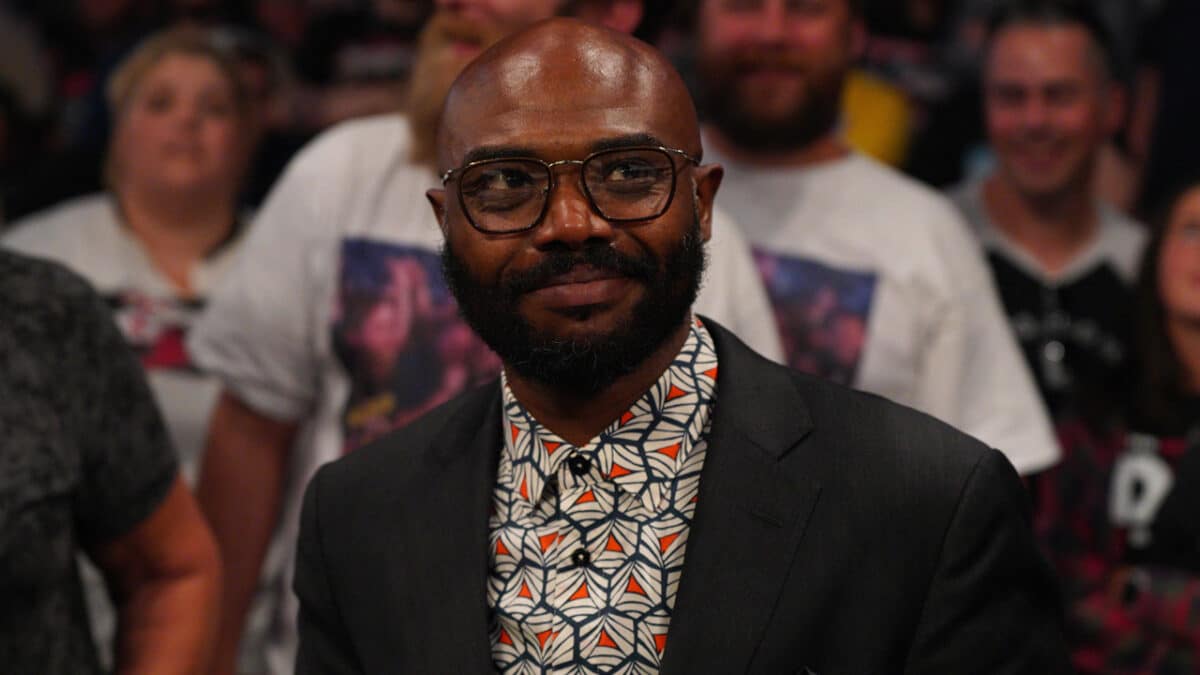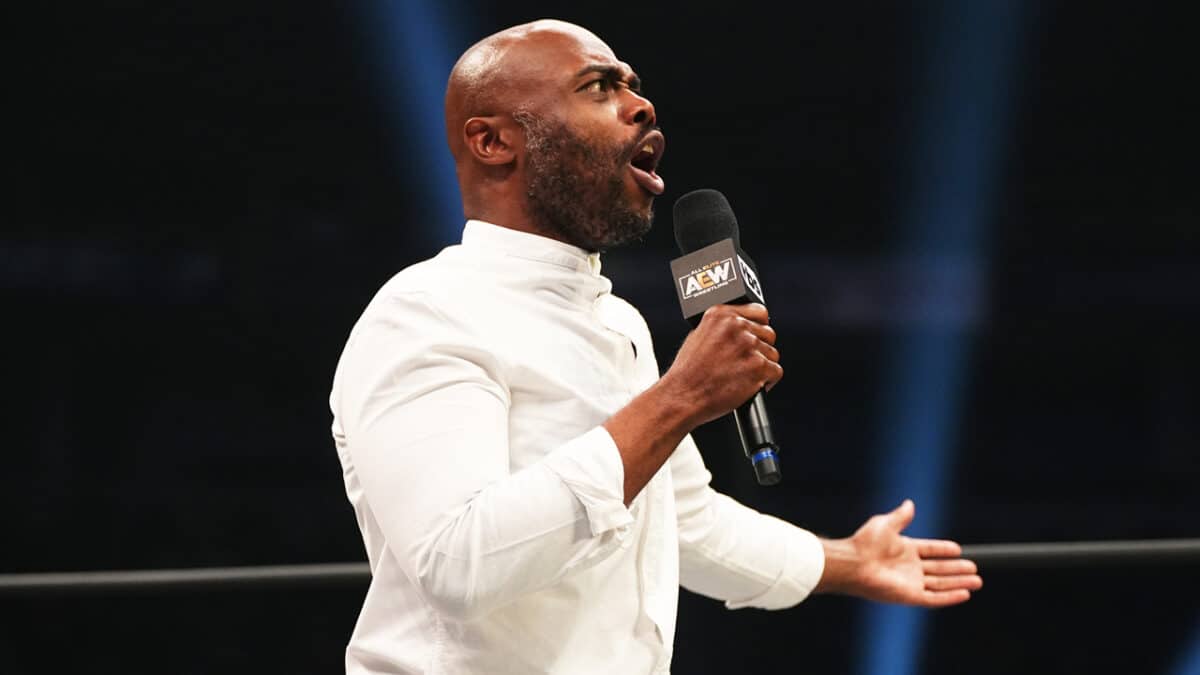Stokely Hathaway Reveals Why He Really Left WWE
In April, Malcom Bivens aka Stokely Hathaway was released in a surprise move by WWE.
Hathaway was offered a contract extension, but declined the offer. He did a comedy show alluding to why he left, but he says “the wrong message got sent.” On the latest episode of The Sessions with Renee Paquette, he revealed what actually happened.
“I need to be completely honest. I woke up one day in February and just felt miserable. I just felt, I guess the right way is, I just felt crazy. Like I didn’t know where I was, I didn’t know what was going on.” The feeling would go away, but came back to the point where it was “debilitating.”
Stokely Hathaway Discuss Mental Health Journey

“I voluntarily committed myself. I think this was on a Friday. I got out on Sunday. It was a very interesting experience, mainly because I would say in like Florida, it’s like prison for the mentally ill. So when I went in, I had no idea what I was in for. I was kinda like in a cell. No real sheets, it was like a metal frame that you’d laid on. The sink was one of those that was like rigged to be motion detected. They gave you a little thing of soap and a little thing of toothpaste. You couldn’t really go into your room until like 8, 9 P.M. and you had to wake up at 6 A.M. You just like walked the floors and that’s like it. Walk back and forth to fill up the time. That was like three days of that. And then afterwards I was like, ‘maybe I’m not as crazy as I thought.’ (laughs)
When discussing how he got to that point, Hathaway says “it was just trying to manage everything. I regret leaning into the “being funny” thing because I think it’s hard for people to take you seriously. So who am I going to say ‘I feel this way’, like I don’t think there was anyone to really like listen or that I could vent or to talk to. And especially with social media nowadays. One, it’s hard to take people seriously. Two, I don’t want to say it’s like a thing to use mental health as a crutch, but I just felt like no one would believe me if I said, ‘hey, I feel this way or I feel that way.’ So, I just felt like that was the right thing for me to do.”
At the time where he felt like he needed to go get help, he didn’t tell anyone. “They take your phone away, so like I had minor communication.” He was able to check in with his dog sitter, so he was able to get his phone for a few minutes. Afterwards, I told people close to me that I could trust and honestly it worked because it didn’t get out.”
Hathaway says his time at the facility wasn’t beneficial other than he never wants to go through it again.
Why He’s is Coming Forward Now

When discussing pressures from work at the time, Hathaway says he feels a lot of pressure “as a Black talent because I feel like I get judged more harshly than other people. Like I feel like everything I do is analyzed, like overanalyzed. Everyone gets a critique, but I feel like mine is like a different level. I’m also incredibly hard on myself. So it was like one of those things where hard on myself, I had to realize it’s wrestling. It’s wrestling, it’s not like a live or die situation. So for me, it was dealing with that and it was also again, I regret leaning into the funny thing because I’m very introverted and closed off. You know what? I have this very small circle of people I trust.”
To help him cope, he “prays every day. Even if you’re an atheist, it helps. At the end of the day, even if there isn’t God or Allah or whatever, I think just being able to focus and having a peace of mind that has helped me, I’d rather be safe than sorry. Y’know, I do not want to go to hell if there is one. But, that has been pretty important to me.”
He also revealed that he agrees with some ideologies in the Islamic faith. He clarified that he is not in the Nation of Islam. Revealing this information on the podcast is also the first time his family will learn this about him.
Once he left the facility, he had to go back to work with WWE and he was miserable. There was pre-tape and he had to “just jump back into it and get my shit together.” He decided to come forward with what he’s been dealing with so that his current co-workers can understand him and to talk about mental health more openly. “I’m sure there a many Black males who have felt the way that I do, so this is a ‘hey, it’s not the end of the world.'”
For his AEW co-workers, he said he wants to share all of this because he thinks there was this expectation that “I was going to do cartwheels and it’s just like no, I want to come in and do my job and leave. Everywhere I’ve worked outside of wrestling, it can be taken the wrong way, especially as a Black male. It can turn into ‘oh, this dude has an attitude.’ Or this person doesn’t want to be bothered. When the harsh reality is — the nice way to say it is — stay out of shit. I have my own segments to deal with. I don’t want to know about it unless it pertains to me.”